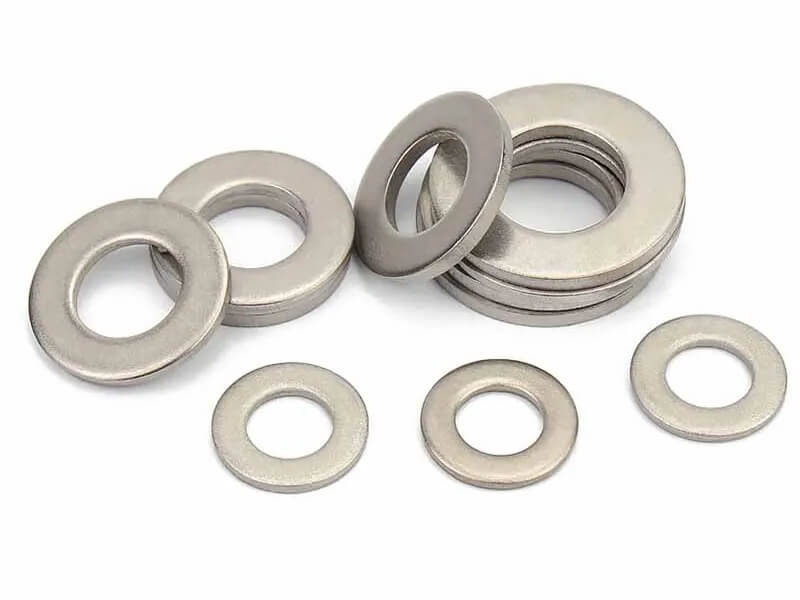In the vast landscape of industrial engineering, where precision meets durability, the significance of gaskets cannot be overstated. These seemingly small components play a crucial role in ensuring the integrity of seals in various applications, from aerospace to automotive, and from chemical processing to power generation. Among the plethora of materials utilized in gasket manufacturing, titanium stands out as a true champion, offering a unique combination of properties that make it an ideal choice for critical sealing applications. In this exploration, we delve into the realm of titanium gaskets, unraveling their extraordinary attributes, applications, and the engineering marvels they bring to the table.
The Unrivaled Properties of Titanium
Titanium, known for its exceptional strength-to-weight ratio, corrosion resistance, and biocompatibility, has long been revered in numerous industries. Its remarkable properties stem from its low density, high tensile strength, and outstanding resistance to corrosion, particularly in aggressive environments such as those found in chemical processing plants and offshore oil rigs. These attributes make titanium an invaluable material for applications where reliability and longevity are paramount.
A Closer Look at Titanium Gaskets
Gaskets serve as seals between two mating surfaces, preventing leakage of fluids or gases under pressure or temperature variations. Titanium gaskets capitalize on the unique properties of this metal to offer superior sealing performance in demanding environments.
One of the primary advantages of titanium gaskets lies in their exceptional corrosion resistance. Whether exposed to harsh chemicals, extreme temperatures, or corrosive atmospheres, titanium gaskets maintain their structural integrity, ensuring leak-free operation over extended periods. This corrosion resistance makes them indispensable in chemical processing plants, where the reliability of seals is critical for safety and operational efficiency.
Moreover, titanium gaskets exhibit outstanding resilience to high temperatures, making them suitable for applications where conventional gasket materials might fail under thermal stress. In aerospace and gas turbine engines, where temperatures can soar to thousands of degrees Celsius, titanium gaskets provide reliable sealing solutions, contributing to the efficiency and reliability of these high-performance systems.
Another notable characteristic of titanium gaskets is their exceptional strength. Despite being lightweight, titanium gaskets boast impressive mechanical properties, allowing them to withstand high pressures without deformation or failure. This strength-to-weight ratio is particularly advantageous in aerospace and automotive applications, where every gram saved translates to improved fuel efficiency and performance.
Furthermore, titanium’s biocompatibility makes it an attractive choice for gaskets used in medical devices and implants. Unlike some other materials that may cause adverse reactions within the human body, titanium exhibits excellent biocompatibility, ensuring compatibility with bodily tissues and fluids. This property has led to the widespread adoption of titanium gaskets in medical applications, where reliability and safety are paramount.
Applications of Titanium Gaskets
The versatility of titanium gaskets lends them to a wide range of applications across various industries. Some notable applications include:
- Chemical Processing: Titanium gaskets are extensively used in chemical processing plants for sealing pipelines, reactors, and other equipment handling corrosive fluids. Their exceptional corrosion resistance ensures leak-free operation, minimizing downtime and enhancing safety.
- Aerospace: In the aerospace industry, where lightweight materials with high strength are crucial, titanium gaskets find applications in aircraft engines, fuel systems, and hydraulic systems. Their ability to withstand high temperatures and pressures makes them indispensable for ensuring reliable performance in extreme environments.
- Automotive: Titanium gaskets are employed in high-performance automotive engines, where they contribute to improved sealing efficiency and durability. Their lightweight nature helps reduce overall vehicle weight, enhancing fuel efficiency and performance.
- Medical Devices: Titanium gaskets are utilized in medical devices and implants, where biocompatibility and corrosion resistance are essential. From surgical instruments to prosthetic implants, titanium gaskets play a vital role in ensuring the reliability and safety of medical devices.
- Power Generation: In power generation facilities, such as nuclear power plants and gas turbine installations, titanium gaskets are used in critical sealing applications where high temperatures and pressures are encountered. Their ability to withstand extreme conditions ensures the integrity of seals, contributing to the efficiency and safety of power generation systems.
In the realm of sealing technology, titanium gaskets stand as shining examples of engineering excellence. With their exceptional corrosion resistance, high temperature tolerance, and impressive strength-to-weight ratio, titanium gaskets offer unparalleled reliability and longevity in critical sealing applications across various industries. From chemical processing plants to aerospace propulsion systems, these marvels of modern engineering continue to play a vital role in ensuring the integrity and safety of industrial processes and equipment. As technology advances and new challenges emerge, titanium gaskets will undoubtedly remain at the forefront of sealing solutions, continuing to unlock new possibilities in engineering innovation.
